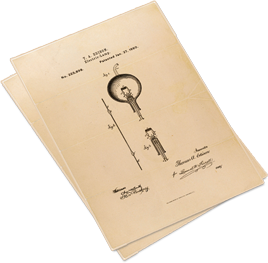Once granted, and for the duration of the term of the patent, only the inventor or assignee (i.e., the patent holder) may determine whether and by whom the patented invention may be practiced. It is not a requirement of U.S. law that a new technology be used, only that it is useful.
On the other hand, in order to maintain patent rights throughout the full term of the patent, the patent holder has certain obligations that must be met. In the U.S., documents must be filed and maintenance fees must be paid prior to the fourth, eighth, and twelfth anniversaries of the patent issuance date.
Furthermore, the patent holder has an obligation to protect and defend the rights granted under patent law. Just as permitting the public to freely cross one’s property may lead to the permanent establishment of a public right of way and the diminishment of one’s property rights, so the knowing failure to enforce one’s patent rights (one legal term for this is laches) against infringement by others may result in the forfeiture of some or all of the rights granted in a particular patent.
U.S. patent rights, which are limited to the right to stop others from making, using, or selling the invention in the U.S. and its territories and possessions, are enforced through actions in the U.S. Federal Courts. In general, infringement of patent rights granted by a particular country must be prosecuted in the court system of that country.


